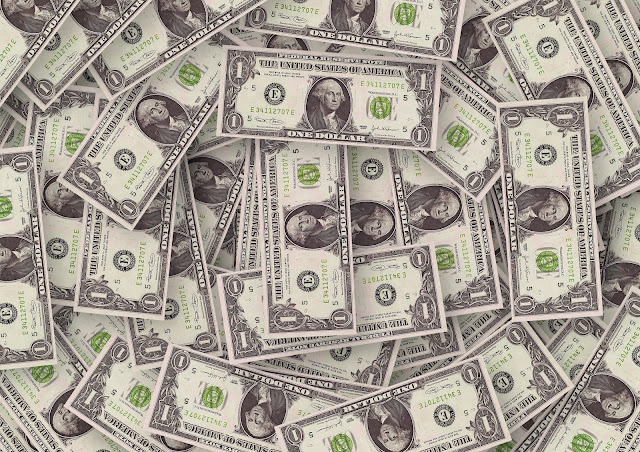The impact of foreign exchange reserves on the economy
Foreign currency reserves have an impact on the credibility of central bank activity in the exchange rate market, especially when the exchange rate is fixed or controlled. When speculative attacks occur, its inadequacy will cause the exchange rate to spiral out of control.
Other macroeconomic factors such as exports, imports, international investment, foreign debt, interest rates, economic growth, and inflation are all affected by the exchange rate. For example, a large increase in the exchange rate makes export products less competitive since they are more costly. This has the potential to disrupt domestic output, particularly if companies rely on export sales. Imported raw materials and capital products, on the other hand, are less expensive, lowering imported inflation.
In a nutshell, the abrupt change in the exchange rate causes havoc.macroeconomic stability. This prompted the central bank to intervene using foreign exchange reserves.
Accumulated foreign exchange reserves also affect a country’s credibility in meeting international obligations such as foreign debt. When the global crisis occurs, sovereign risk increases. Countries with large debts should be forced to allow their currencies to depreciate. Or, they withdraw their foreign currency reserves to refinance their debt.
Exchange rates and foreign exchange reserves
When external forces, such as speculation, threaten the exchange rate and economic stability, foreign exchange reserves operate as a buffer. It is used by the central bank to keep the currency rate constant.
The credibility of an intervention based on a fixed exchange rate is determined by a country's foreign exchange reserves. When there isn't enough, the exchange rate becomes vulnerable and is more likely to deviate from the target. To intervene in the market, the central bank will sell or purchase foreign currency based on exchange rate changes.
Many people sell their domestic money and exchange it for foreign cash when the home currency depreciates. The central bank then sells its foreign currency reserves (for example, US dollars) in order to purchase the native currency. As a result, thedemand for domestic currency. Thus, the depreciation pressure on the domestic currency eases.
When the domestic currency depreciates, many people sell the domestic currency and exchange it for foreign currency. The central bank then sells its foreign currency reserves (say US dollars) to buy the domestic currency. That increases the demand for domestic currency. Thus, the depreciation pressure on the domestic currency eases.
When the native currency appreciates, however, the demand for domestic currency rises. In return for native currency, the central bank will purchase US dollars. Finally, the supply of domestic money expands, reducing the demand on the currency to appreciate.
When a country's foreign exchange reserves are insufficient or depleted, the central bank is forced to devalue or revaluate the native currency. A purposeful depreciation under a fixed exchange rate regime is known as devaluation. Revaluation, or deliberate appreciation, is the polar opposite. Export products are cheap due to devaluation, whereas imported goods are pricey. Revaluation, on the other hand, raises the cost of exports while lowering the cost of imports.When foreign reserves run exhausted, devaluation may not be necessary. It could be used as a purposeful tactic in international trade by a country. To make domestic products more competitive in international markets, the country weakens its currency. China is one of the countries that runs it, allowing it to become the world's largest trade surplus country.
How do you build up your foreign exchange reserves?
There are two causes of enhanced foreign exchange reserves:
Surplus trade
Surplus international investment
When exports surpass imports, there is a trade surplus. The domestic economy receives foreign cash as payment through exports. The domestic economy, on the other hand, requires foreign currency to pay for imports. The economy wins more foreign currency when exports surpass imports. The central bank then uses foreign exchange reserves to absorb the supply of foreign currency.
The variables that drive trade surpluses differ per country. As long as crude oil prices rise, oil exporting countries will experience a gain in foreign reserves. As a result, oil exports significantly outnumber imports. Oil-importing countries, on the other side, will face deficits and watch their foreign reserves dwindle.
When foreign investment in the domestic economy outnumbers domestic investment abroad, there is an international investment surplus. Foreigners inject foreign dollars into the domestic market, raising demand for local currency. The central bank buys domestic money and sells it for foreign currency.
Overseas investment is influenced by the return spread between the domestic and international markets. Interest rate spreads are commonly used by economists to explain this. Other elements, particularly direct investments, include fundamental economic factors such as economic development and the investment climate.








0 Comments